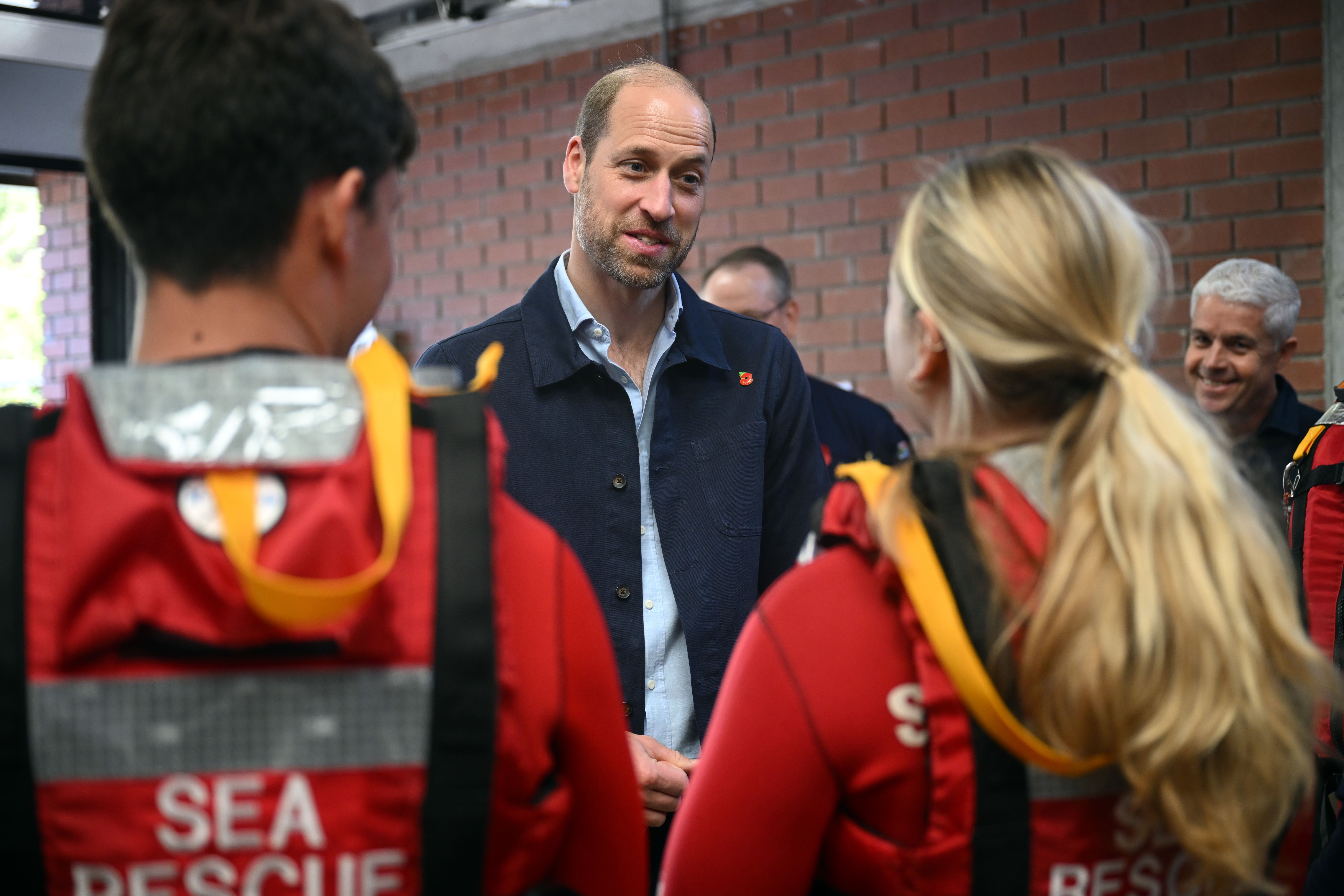William: I miss working in search and rescue
The Prince of Wales met volunteers working for the National Seas Rescue Institute (NSRI) to hear about their lifesaving work.

Your support helps us to tell the story
From reproductive rights to climate change to Big Tech, The Independent is on the ground when the story is developing. Whether it's investigating the financials of Elon Musk's pro-Trump PAC or producing our latest documentary, 'The A Word', which shines a light on the American women fighting for reproductive rights, we know how important it is to parse out the facts from the messaging.
At such a critical moment in US history, we need reporters on the ground. Your donation allows us to keep sending journalists to speak to both sides of the story.
The Independent is trusted by Americans across the entire political spectrum. And unlike many other quality news outlets, we choose not to lock Americans out of our reporting and analysis with paywalls. We believe quality journalism should be available to everyone, paid for by those who can afford it.
Your support makes all the difference.The Prince of Wales has admitted he misses his former “life” working in search and rescue as he took to the seas with a lifeboat crew in Cape Town.
William kicked off his final day in South Africa with a visit to Simon’s Town Harbour, home to the country’s largest naval base.
He met volunteers working for the National Seas Rescue Institute (NSRI) to hear about their lifesaving work and asked what inspired them to get involved.
I miss this life. Any chance to get back, I’ll take
Before donning a life jacket and heading out with the crew, he asked how choppy the water was and joked that he should possibly be wearing more kit so he did not get wet.
William also revealed that he was trying to teach his three children about rip tides and admitted he wished his family had been with him for the four-day trip.
He was asked by a member of the crew if he had ever done search and rescue work, he replied: “I miss this life. Any chance to get back, I’ll take.”
The future king was a search and rescue helicopter pilot based at RAF Valley in Anglesey, North Wales before working as a pilot with the East Anglian Air Ambulance.
He was greeted on arrival by Mike Vonk, chief executive officer of NSRI, and was given a short tour of the base before chatting to members of the team about mental health support for first responders, an issue about which he feels particularly strongly.
“Nice windy day today,” he joked. “How are the seas today? It’s quite choppy!”
In the operations room, the prince was shown the various pieces of equipment and technology that they use to monitor the waters.
He appeared impressed, saying he had never seen such kit before, and joked that he would have to download the app at home so he could track them.
“We are trying to teach the children to understand currents,” he said.
“The problem with rips is that you don’t know where they are going to appear.”
The prince asked if riptides occurred on every beach in Cape Town, adding “Driving down the road here, if you look out you can see so much silt being taken out.
“It’s good to use those apps to inform your work.”
Captain Andrew Dekock told him: “It’s changed our lives,” to which William replied: “I bet it has.”
He asked about the gaps between each lifeboat station and how many miles each crew covered. He also asked if it was predominantly tourists who got into trouble as locals were more informed of the dangers.
Capt Dekock asked him about his efforts to promote access to swimming lessons through his Royal Foundation.
“Bearing in mind the UK is an island, we should all know how to swim,” the prince said. “It’s a life skill that might save your life one day.”
William then donned a red waterproof coat and life jacket before the boat slowly made its way out of the base heading for Kalk Bay.